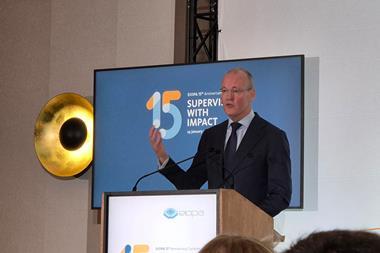GLOBAL - Booming deal flow, particularly in increasingly large transactions, is fueling robust growth in emerging market private equity investment, according to research from the Emerging Markets Private Equity Association (EMPEA).
At the end of the first half of 2010, investment totals hit $13bn (€9.8bn), up 55% on the $8bn invested this time last year.
The first half of the year saw $4.5bn more invested than in the first half of 2009.
This rise in activity is feeding into a rebound in fundraising levels, with $11bn raised in the first half of 2010 versus $9bn raised in the same period last year.
EMPEA said Asia had taken in 55% of that capital, with China-dedicated funds the leading destination, but it added that "notable upticks" in sub-Saharan Africa and Latin America also accounted for a significant portion of the overall increase in capital raised.
For the first time, Brazil made an appearance as a destination for two of the five largest private equity deals in emerging markets through mid-year.
Sarah Alexander, president and chief executive at EMPEA, said: "Investment conditions in emerging markets private equity are revitalising.
"There are more and better-quality deals in the pipelines - the continued easing of price expectations among sellers means managers have been more successful in closing transactions."
The number of deals being done across emerging markets is now slightly higher than its pre-crisis pace.
This year, 402 deals have been completed so far, up from 280 in the first half of 2009.
Meanwhile, average deal size is up 27% - from $40m to $51m - driven by 28 deals topping $100m versus only 17 of similar size in the first half of 2009.
Jennifer Choi, head of research, said: "Anecdotally, through our LP [limited partner] networks, we see an increasing awareness of emerging market opportunities in general.
"Private equity is a natural extension of that because investors still believe they can achieve better returns from private equity over public equity, but also because they recognise you can only go so far with public equity because of the relative lack of depth in the capital markets.
Choi said some LPs that had not done any emerging market private equity wanted exposure to local growth that could not be achieved through the public markets.
"That's still a minority, however," she added.
"The majority are diversifying a still-growing private equity allocation, often moving out of the mega-funds, that may only give you developed market exposures, toward firms that have at least some exposure to the growing Asian and Latin American markets."
The EMPEA is an independent association of 280 members promoting private equity investing in Africa, Asia, central and eastern Europe, Russia/CIS, Latin America and the Middle East.












